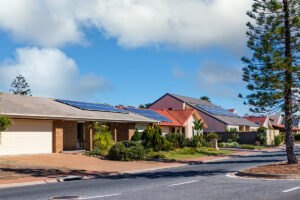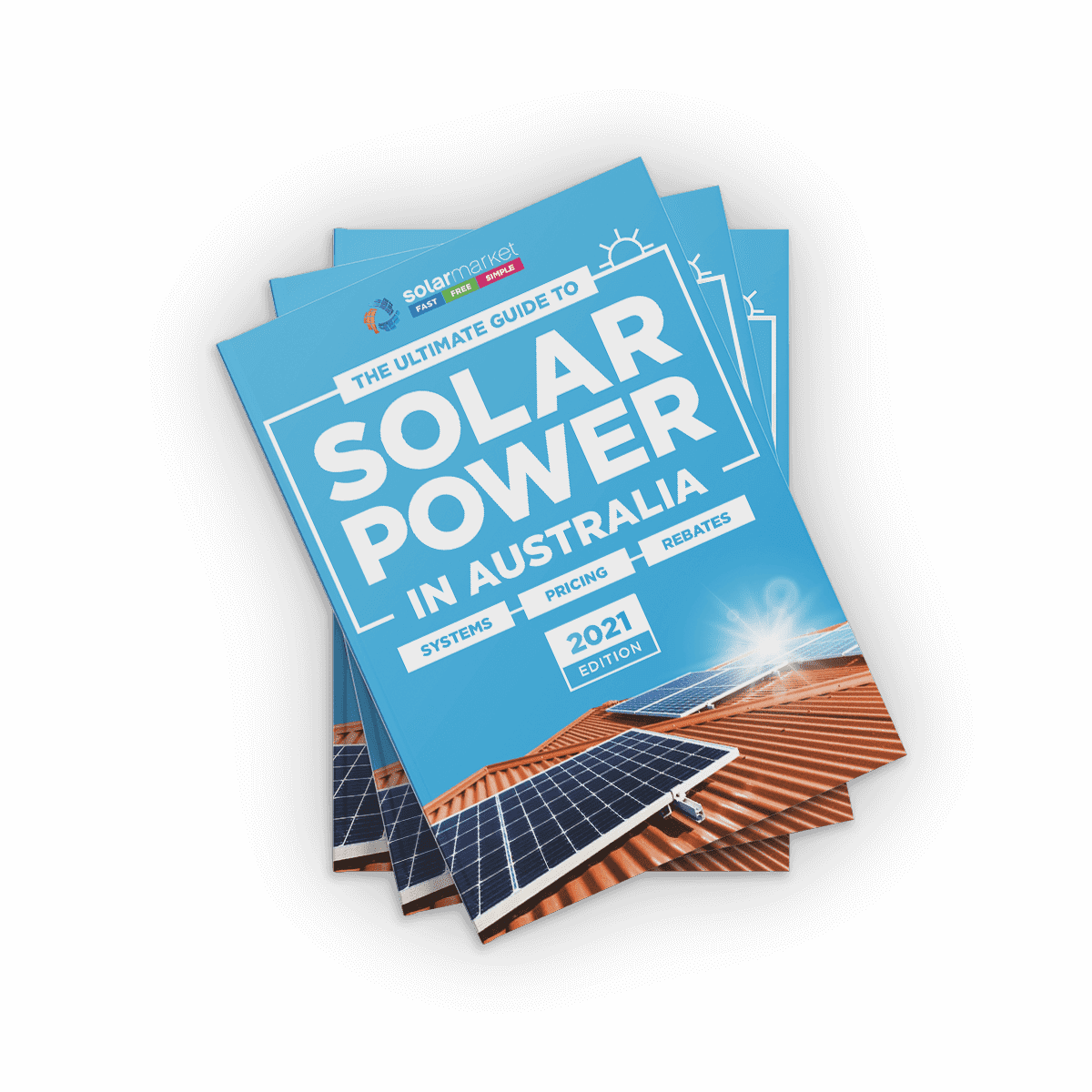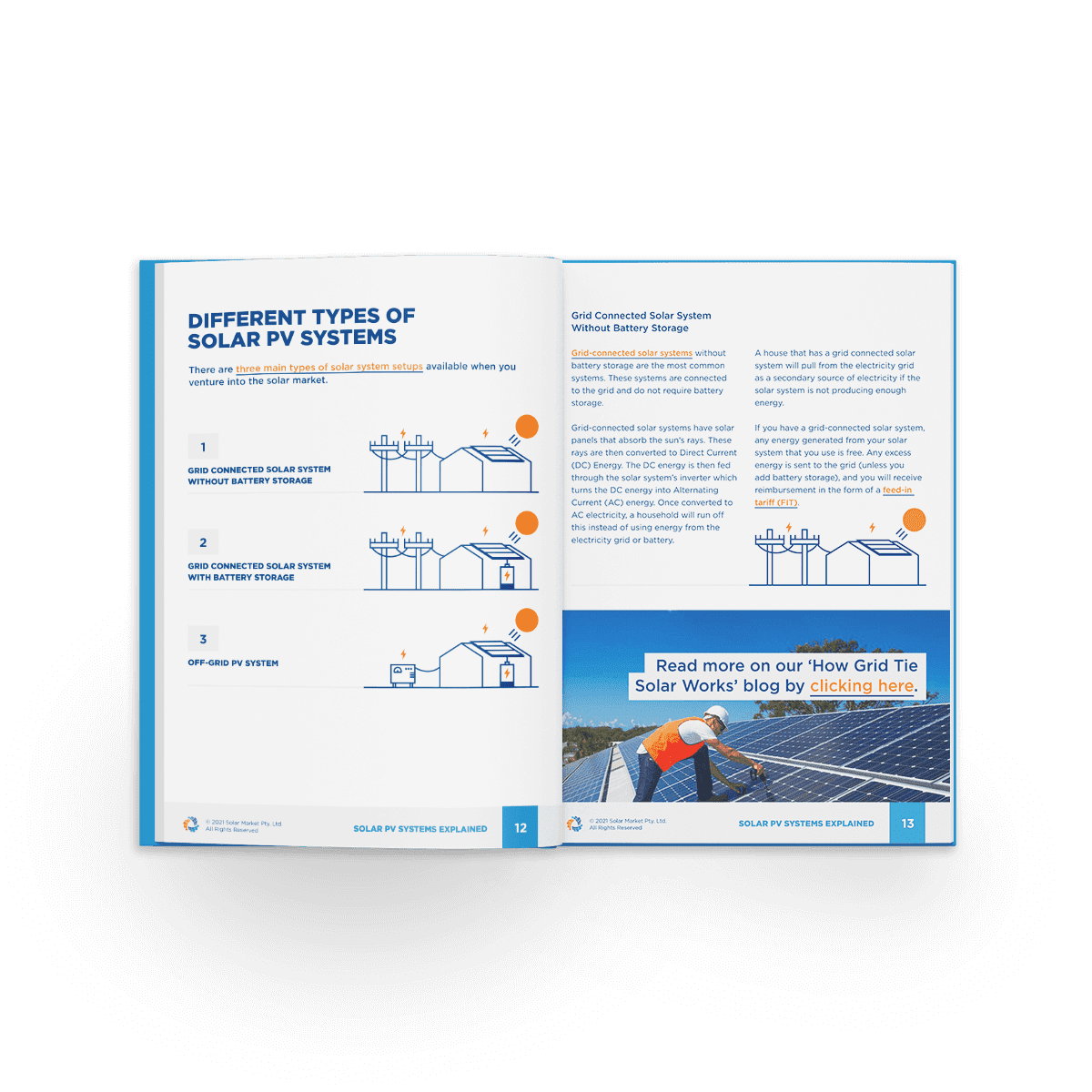
If you have an electric storage or gas water heater and your bills are looking not too pleasant, it may be time to upgrade to a solar hot water system and reduce your household water heating costs. Dependent on whether your current water heating system is gas or electric, upgrading to a solar hot water system can reduce your bills by up 25%!
Whilst this is not as high as what a solar PV system can save you, a solar hot water system is relatively cheap in comparison and is a great alternative if a solar PV system is not an option or a cost effective addition if you already have a solar PV system.
Types Of Hot Water Systems
There are a few different types to choose from when deciding on a solar hot water system, however the most common type installed in Australia is a Collector-based System or a Heat Pump System.
Collector-Based Hot Water Systems
A collector-based system heats cold water from your mains using three prime components which are; the solar panel/s, storage tank and the electric/gas booster.
The way a collector-based system works is that the solar panel is designed to soak up the sun-rays and transfer this heat to water for use within the household. Collector-based hot water systems can usually cover the majority of a households water heating, if not 100% of it.
Breakdown Of How A Collector-based Hot Water System Works
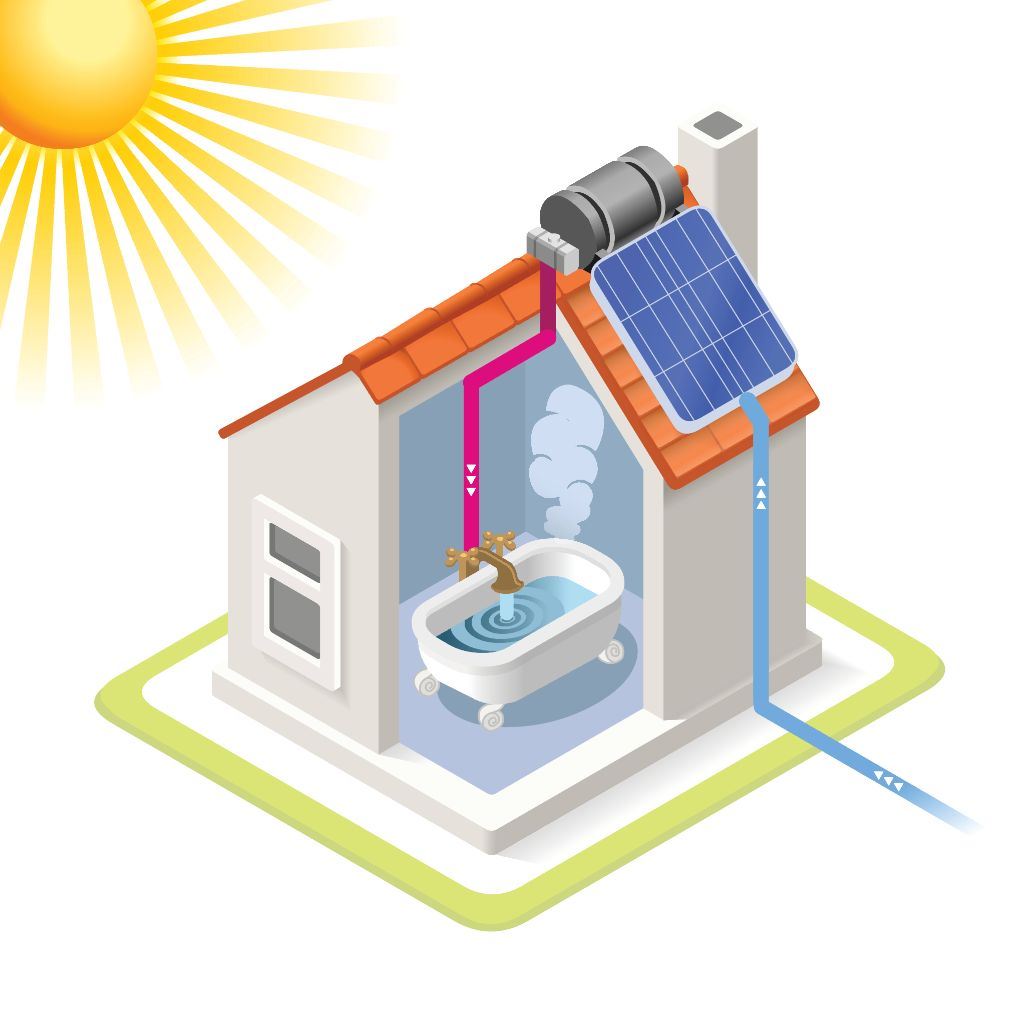
A collector based solar hot water system will collect cold water from your mains and transfer it into the solar panel to be heated up. How hot is dependent on the strength of the sun, which will vary throughout different seasons and different times of the day.
Once the water is heated from the solar panel, it is transferred to the storage tank. Due to hot water rising, the coldest water will remain at the bottom of the tank and hottest at the top. The storage tank is designed so that the cold water at the bottom of the tank then returns to the solar panel to get hotter. This continues on a cycle until the storage tank reaches its optimum temperature (usually around 60 degrees).
If the optimum temperature is unable to be reached due to weather, high consumption or other factors, the booster will kick in and bring the water up to the required temperature prior to the water reaching your household taps for use.
Different Types Of Collector-Based Hot Water Systems
A collector-based hot water system can come in two different styles, a Flat Plate Collector or Evacuated Tube Collector.
Both Flat Plate Collectors and Evacuated Tube Collector hot water systems work primarily the same, using the same 3 main components mentioned earlier; the solar panel, storage tank and electric/gas booster.
Flat Plate Collector
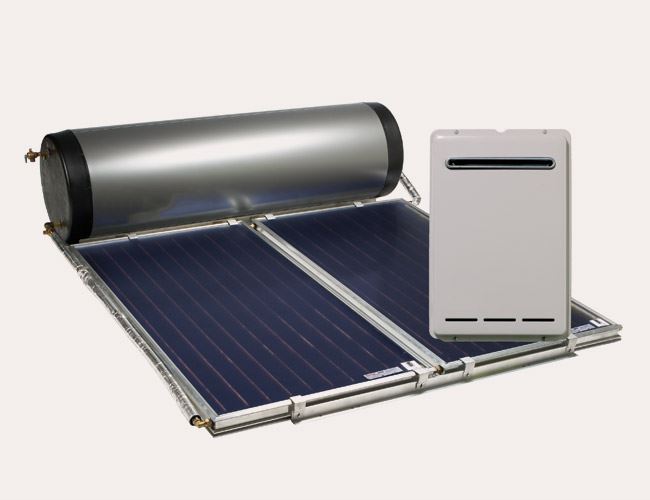
A Flat Plate Collector has the simpler design of the two which results in it costing less to purchase and install.
It consists of copper pipes and a large sheet of copper or aluminium to absorb the heat from the sun and raise the temperature of the water running through the pipes which is then transferred to the storage tank.
- Cheaper
- Easier to install
- Reliable
- More resilient to hail
Evacuated Tube Collectors
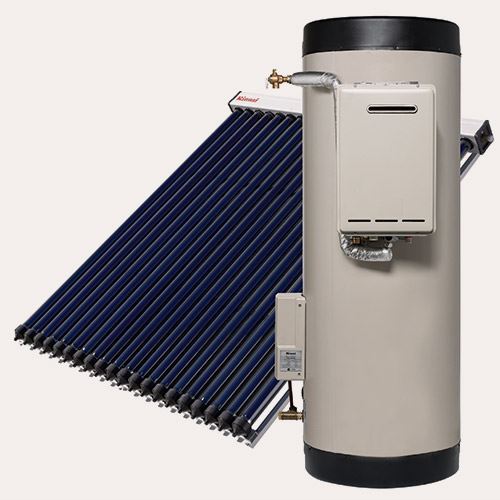
The Evacuated Tube Collector design is slightly more complicated and costly, however can be viewed as an investment due to the system being more durable and more efficient in transferring heat.
It is comprised of roof-mounted tubes and a storage tank. The water is circulated from the cylinder through the header across the top of the tubes using a small pump to absorb the maximum available solar energy.
The tubes are typically frost tolerant, down to -12° C and can operate more effectively in overcast conditions, which makes them a good choice for colder climates.
- Durable
- More efficient in transferring heat
- Can be more expensive initially
- Relatively easy to fix
- Able to work efficiently in colder and cloudy environments
Heat Pump System
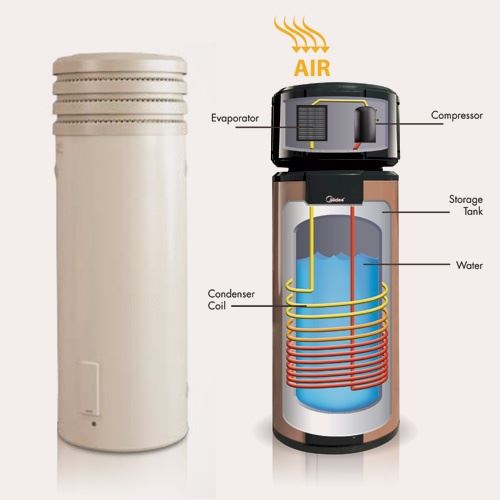
The alternative to a collector-based hot water system is a Heat Pump System. A heat pump system has the same purpose of heating your households water whilst reducing your water heating bills, however it does not require a solar panel and instead relies on heat.
The system pulls heat from the surrounding air and transfers it at a higher temperature into a tank to heat water. It works very much like an air conditioner, whereby it extracts heat from the air and then uses it to heat the water tank. Whilst usually only recommended for warmer climates they do have booster options available for when the climate is cold or when consumption levels are high.
- Doesn’t require direct sunlight or roof space
- Requires to be in warm or hot climates (not recommended in colder climates)
What System Is Best For You?
Depending on your budget, location and desired reduction in water heating costs, which system is suitable for your household may vary. Ideally before investing in a new hot water system you’ll want to first know how much your average household water consumption is per day in litres. This includes kitchen use, showers, cleaning, washing machine, dishwasher etc. Once you can determine your usage (should be available on your bill/invoice), you’ll be able to have an installer quote for the most suitable system and size for you.
Government Assistance and Rebates Available
Under the Federal Government subsidy, officially known as the Small-scale Renewable Energy Scheme (SRES), individuals and small businesses are entitled to large subsidies when installing eligible small-scale renewable energy systems such as solar PV systems and solar water heater systems. An installer can claim the subsidy on your behalf and apply the reduction to the upfront cost of the system when you purchase.
State’s such as Victoria also offer additional rebates which you can claim on top of this when choosing to install a Solar Hot Water System. Check our Solar & Battery Rebates, Subsidies & Incentives in Australia page to find out if your State does!





